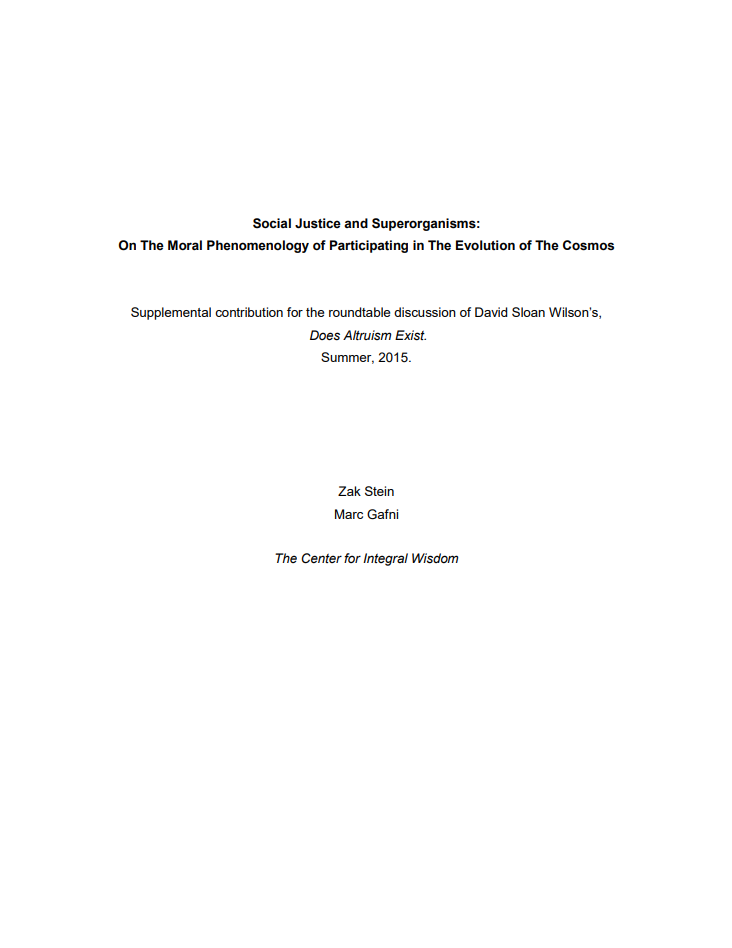Social Justice and Superorganisms
A contribution for the roundtable discussion of David Sloan Wilson’s, Does Altruism Exist. Summer, 2015.
Zak Stein, Marc Gafni, Barbara Marx Hubbard
The Center for Integral Wisdom & The Foundation for Conscious Evolution
Abstract:
The New Paradigm Is Old Hat
Heterodox evolutionary discourse has long entertained the emergence of what Wilson calls superorganisms. These are emergent phenomena that functionally integrate lower-order organisms as parts, lessening within group selection pressure, making the many into one, and thus fostering the evolution of a new organismic totality. Over the years this idea led many to suggest the (inevitable?) emergence of some kind of new evolutionary event—a superorganism of humans. Wilson is interested to argue that, now, with new evidence, we finally really know that, for example, cooperation can have an impact on evolution via group selection, even as it seems counter intuitive to cooperate at the level of individual selection. Moreover, the dynamic systems and evo-devo researchers have been on to something: emergence often works via symbioses and “cooperation,” especially at the cellular and ecosystem levels. This provides a new and better platform for understanding human ethical and moral action in evolutionary terms.
We strongly support these directions and expansions in mainstream evolutionary science. We would only like to note here that heterodox evolutionists have already spilled a lot of ink about the role of morality, self-consciousness, and group-consciousness as a factor in evolution. This tradition has spent more time looking into the implications of evolutionary thinking for the self-understanding of the species, and less time working with models of mechanisms and exteriorities. So the question of whether altruism exists has not been as important as questions about the many forms of selfless behavior, as well as the higher levels of moral development individuals can attain while “becoming a part of something larger than themselves.”
In particular, the focus has been on this question: What would it really mean for our humanity if we become swept up into a superorganism, as if becoming cells organized for the benefit of some larger organelle? This is a profoundly important ethical question, and it tends to evoke, when asked, a religious or spiritual state of mind.
Some us who have been actively asking such questions have also sought to refine the phenomenology of moral consciousness associated with evolutionary emergence in human groups. The key focus is how to strike a balance between what Wilson calls (unfortunately) “selfishness” and “altruism.” We call them autonomy and communion. Too much of either and any group is pathological. Too much communion and you get a kind of totalitarianism or coercive fascism. Too much autonomy and you get narcissists and rouges, lawlessness and violence (like the wolves of Wall Street Wilson laments). These are the kind of phenomena studied in the field of conscious evolution, where the evolution of human consciousness itself is taken as both object and subject.

